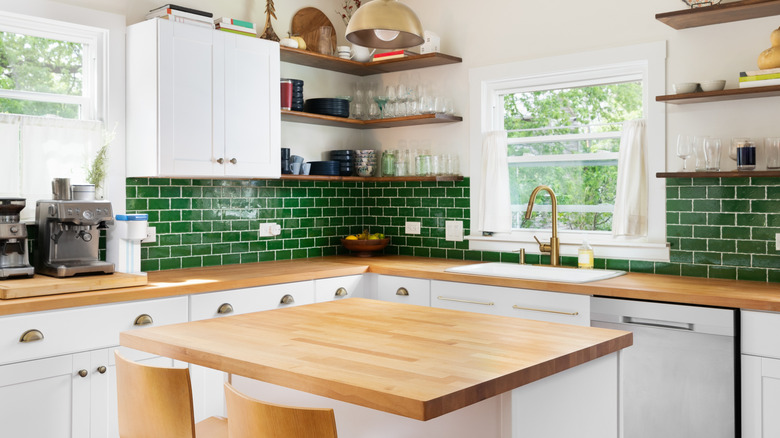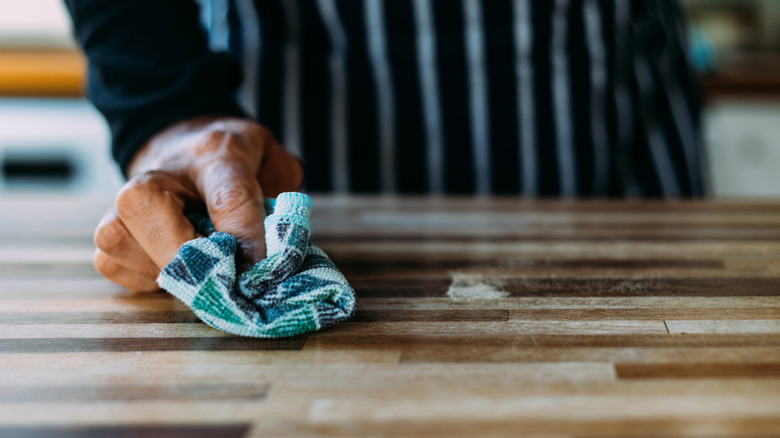The Major Downside Of Butcher Block Countertops You Should Consider
Butcher block evokes ruggedness and timeless beauty, and that meshes well with the modern trends of biophilic and sustainable interiors. With these nature-inspired designs on the rise it's no wonder the outdated wood countertop style is trending once again. This centuries-old countertop material originally served the very functional purpose of mitigating the heavy action of a butcher's knife. Butcher block slowly made its way to domestic kitchens everywhere, experiencing particular popularity in the latter decades of the 20th century. As with any decor craze, it was eventually replaced by the next big thing until it recently circled back onto the radar of interior designers and homeowners. However, given the heavy maintenance that butcher block requires, you're probably better off going with a different material for your countertops (especially if you value peace of mind).
As gorgeous and warm as it looks, butcher block is an unsealed material that requires constant care to retain its appearance and health. This means daily cleaning, monthly oiling, and semi-frequent sanding. You also need to be constantly vigilant of the things you should never do if you have butcher block countertops, like spilling liquids or placing hot dishes on top of it. Unfortunately, this can be nearly impossible in busy households or those with children.
What to expect if you get butcher block for your kitchen
Keeping butcher block countertops in pristine condition is hard work. While they were initially conceived for direct food preparation, butchers weren't too concerned with the aesthetics of their work stations. If you want your butcher block countertops to age gracefully, you should avoid placing any kind of food on them, as counterintuitive as that may sound. Damage caused by blades or staining from spilled liquids can be a real headache to reverse. Of course, you can't chop directly on sealed stone or engineered countertops either, but when it comes to spills, you need only a damp towel to solve the issue. Conversely, with butcher block, you may need specific cleaning products like hydrogen peroxide.
Provided you are regularly cleaning your butcher block countertops, you will still need to oil them monthly. Much like moisturizing the skin, this will keep the material from drying, in turn preventing cracks. While this is a relatively simple process, it is recommended to leave the countertop soaking overnight before removing excess oil and using it again.
If, after all this, your butcher block is still looking a little rough, you can always sand it. This is both a blessing and a curse. Sanding can make this surface look brand new, which is not something you can say for stone and epoxy alternatives. Still, it's an extra step that you can skip altogether if you own any other kind of countertop.

